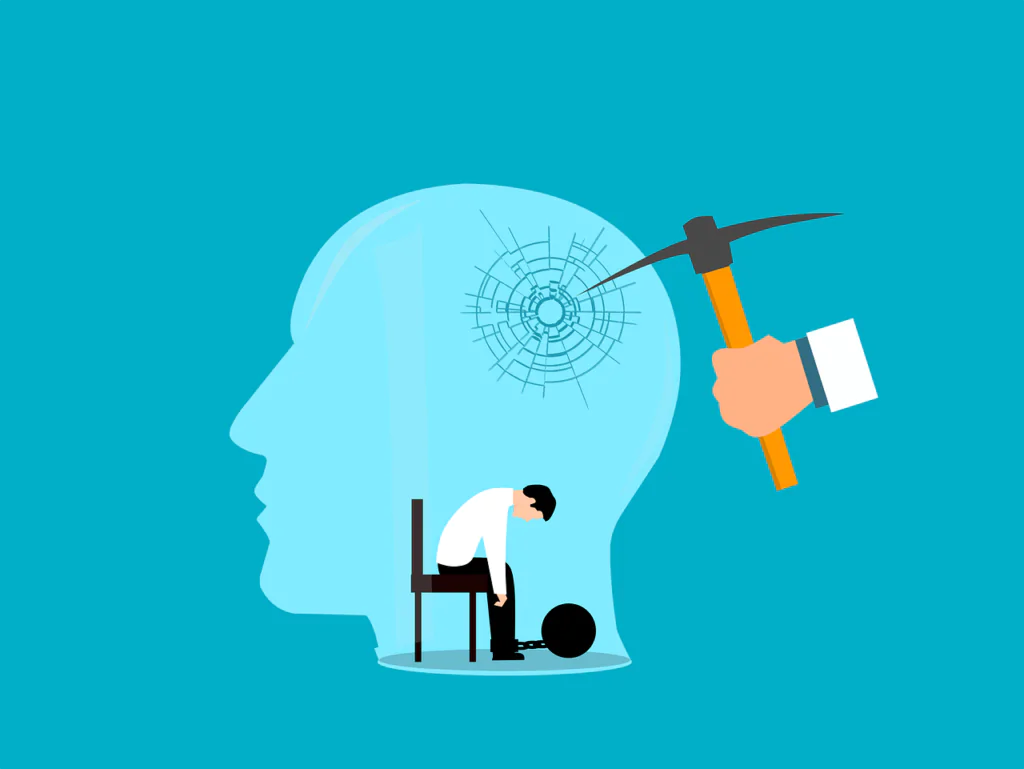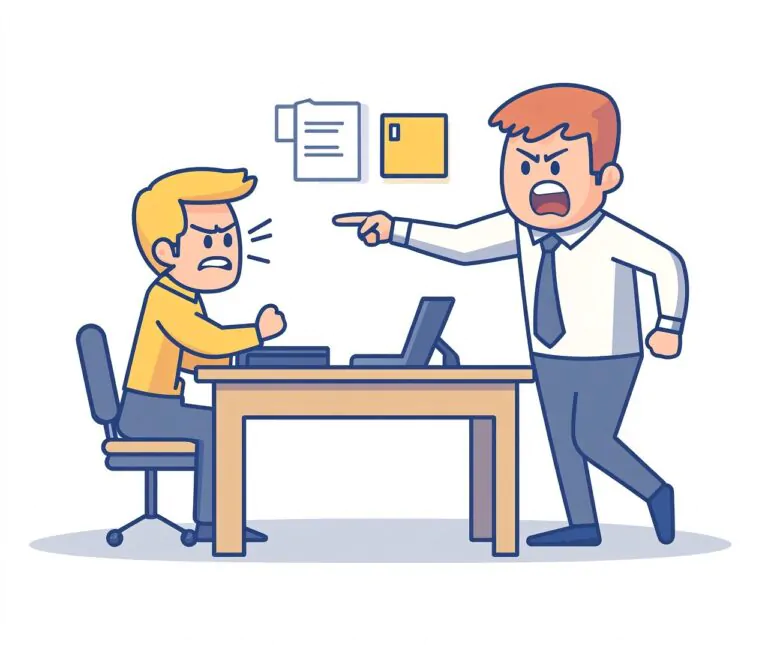Overthinking: The Silent Destroyer of Productivity and Success (How to Stop It!)
“Overthinking is a dream killer. Sometimes you can drown yourself in your own thoughts.” – Steve Maraboli

What Is Overthinking?
Have you ever heard someone say, “Chill, you’re overthinking it”? You’re not alone. We all get stuck in our heads sometimes, replaying things or stressing about the future. Fancy term for it? “Overthinking.” Basically, it’s getting caught in endless thought loops that go nowhere. Rumination, worry, whatever you call it, it’s that mental hamster wheel keeping us up at night and messing with our focus. Sound familiar? Let’s break free!
In today’s busy and competitive world, being productive and successful is important. But sometimes, a problem called overthinking can make it hard to reach our goals. Overthinking can stop us from being productive and cause us to miss chances and not reach our full potential. This blog will talk about what overthinking is, how it affects our success, and ways to stop it. We’ll share tips to take control of our thoughts, break free from overthinking, and reach our full potential for success and productivity.
Impact of Overthinking on Productivity
Overthinking can really affect how much work we get done. When we think too much about every little thing and analyze every possibility, it’s easy to get distracted and feel overwhelmed by too many thoughts. This mental clutter uses up our energy and makes it hard to focus on our actual tasks. Overthinking also makes it tough to make decisions. We spend so much time thinking about the good and bad sides of things, worrying about what might go wrong, and doubting ourselves that we can’t make a decision. This leads us to miss chances and put off important tasks.

“Don’t let overthinking melt the clarity of your mind, leaving behind pools of doubt. Simplify, breathe, and let your thoughts flow freely.”
Moreover, overthinking can make us feel more stressed. Always worrying and doubting ourselves when we overthink can make us emotionally tired and burned out. This makes it even harder to get things done. In the next part, we’ll talk about simple ways and tools to stop overthinking. This will help us take control of our thoughts, be more productive, and reach our goals. Keep reading!
Identifying Signs of Overthinking in Your Work
Ever feel like your mind is like a hamster running on a wheel, stuck with the same worries? Do you replay talks in your head, going over every word and move long after they’re done, making them seem different than what really happened? If you do, you might be someone who tends to overthink a lot.
“Don’t let overthinking pour doubt like wax, smothering the flame of productivity. Keep your mind aflame with purpose and simplicity.”

One of the first steps to overcoming overthinking is to become aware of its presence in our work. By recognizing the signs and patterns of overthinking, we can take proactive measures to address and manage it effectively. Here are some common signs to look out for:
- Analysis paralysis: Spending excessive time analyzing every detail and possibility without making progress.
- Perfectionism: Setting unrealistically high standards and constantly striving for perfection, often leading to procrastination.
- Negative self-talk: Engaging in self-critical and self-doubting thoughts that hinder our confidence and decision-making.
- Difficulty making decisions: Feeling overwhelmed by choices and struggling to come to a conclusion.
- Endless rumination: Getting stuck in a loop of repetitive, unproductive thoughts that prevent us from moving forward.
If you recognize these symptoms in yourself, it’s time to take a step back and break free from the overthinking trap. Remember, your thoughts don’t control you; you control your thoughts. By identifying these signs in our work, we can begin to develop strategies and utilize tools to overcome overthinking and regain control of our productivity. So, let’s dive into the strategies and tools that will help us reclaim our focus and achieve more in the next section.
Strategies to Overcome Overthinking
In order to overcome overthinking and regain control of our productivity, it is important to develop strategies that can help us effectively manage these tendencies. Here are some proven strategies to consider:

- Practice mindfulness: Engage in activities such as meditation or deep breathing exercises to bring your focus to the present moment and quiet your mind.
- Set realistic goals: Break down your tasks into smaller, manageable steps. This will help alleviate the feeling of being overwhelmed and make it easier to make progress. Understand the goals setting theory for effective goal setting.
- Challenge negative thoughts: Replace self-critical and self-doubting thoughts with positive affirmations. Remind yourself of your capabilities and focus on your strengths.
- Prioritize and delegate: Identify the most important tasks and allocate your time accordingly. Delegate tasks that can be handled by others, freeing up your mental and physical resources.
- Take regular breaks: Allow yourself time to rest and recharge. Stepping away from your work can help clear your mind and reduce the tendency to overthink.
By implementing these strategies, you can gradually overcome overthinking and regain control of your productivity. In the next section, we will explore some useful tools that can further support you in this journey of reclaiming your focus and achieving more. Stay tuned!
Tools and Techniques for Managing Overthinking
In addition to the strategies mentioned earlier, there are several tools and techniques that can further support you in managing overthinking and enhancing your productivity. Consider incorporating the following:

- Journaling: Writing down your thoughts and feelings can offer clarity and perspective. By journaling regularly, you can identify patterns in your thinking and gain insights into how to overcome overthinking.
- Time management apps: Utilize technology to your advantage by using time management apps. These applications can help you track your tasks, set deadlines, and provide reminders, keeping you on track and reducing the likelihood of overthinking.
- Cognitive behavioral therapy (CBT): Consider seeking professional help from a therapist trained in CBT. This approach can help you identify and challenge negative thinking patterns, replacing them with healthier, more productive thoughts.
- Visualization techniques: Engage in visualization exercises to imagine yourself successfully completing tasks and achieving your goals. By visualizing positive outcomes, you can boost your confidence and reduce overthinking.
Remember, everyone’s journey to overcoming overthinking is unique, so it’s important to find the strategies and tools that work best for you. Experiment with different techniques and see what resonates with you. Stay committed and don’t get discouraged if progress takes time. With patience and persistence, you can regain control of your productivity and free yourself from the grips of overthinking.
Cultivating a Productive Mindset and Environment
Besides using tools and tricks, having a good mindset and workspace is important to stop overthinking and get more things done. Here are some easy tips: Take care of yourself by sleeping well, eating right, exercising, and doing things you enjoy. When you’re healthy, your mind works better. Set up a workspace without distractions and tell others when you need focused time. These simple changes can help you be less stressed and more productive. Remember, addressing overthinking is an ongoing process, but with dedication, self-awareness, and the right tools, you can overcome this silent saboteur and regain control over your productivity.
Don’t Overthink Failures
When faced with failures in life, resist the urge to overthink and instead, seek solace in the wisdom of the apple tree. In its abundant apples, each carrying ten seeds, a poignant lesson emerges – not every seed blossoms, and that’s perfectly acceptable. Nature imparts a crucial message: to bring about change, persistence is key; you must attempt more than once. Embrace setbacks as opportunities to refine your approach, much like the apple tree’s resilience in producing fruit. Remember, growth often requires multiple attempts, and each experience, whether fruitful or not, contributes to the journey of success. Researchers revealed that Rumination-focused Cognitive Behavioral Therapy (RF-CBT) can significantly reduce overthinking in teens
Conclusion
In conclusion, combating overthinking and regaining control over our productivity requires a proactive approach. By implementing the strategies and tools mentioned in this blog, as well as cultivating a productive mindset and environment, we can overcome the silent saboteur that is overthinking. It is important to remember that this process takes time and effort. We must be dedicated to practicing mindfulness, setting realistic goals, prioritizing self-care, and designing a distraction-free workspace. By consistently adopting these practices, we can train our minds to stay focused and eliminate unnecessary overthinking.
So, let’s take action and commit to breaking free from the chains of overthinking. Start by incorporating one or two of these strategies into your daily routine and gradually build from there. With dedication, self-awareness, and the right tools, we can reclaim control over our productivity and live a more fulfilled and balanced life.
Disclaimer: The purpose of this article is to provide basic knowledge about overthinking and its potential negative impact on productivity. It is not a substitute for professional advice. Readers are encouraged to seek guidance from a subject matter expert or relevant professional for personalized consultation and assistance. The information shared here is for general understanding and awareness, and individual circumstances may vary.








Thanks for sharing. I read many of your blog posts, cool, your blog is very good.
I’m really happy you like my blog! Your support means a lot. If there’s anything you’d like me to write about, just give me a shout. Thanks for reading!